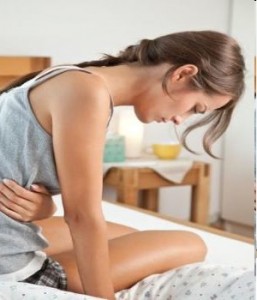What is Endometriosis (Endo)?
The Mayo Clinic defines Endo as:
…an often painful disorder in which tissue that normally lines the inside of your uterus — the endometrium — grows outside your uterus. Endometriosis most commonly involves your ovaries, bowel or the tissue lining your pelvis. Rarely, endometrial tissue may spread beyond your pelvic region.
In endometriosis, displaced endometrial tissue continues to act as it normally would: It thickens, breaks down and bleeds with each menstrual cycle. And because this displaced tissue has no way to exit your body, it becomes trapped. Surrounding tissue can become irritated, eventually developing scar tissue and adhesions — abnormal tissue that binds organs together.
This process can cause pain — sometimes severe — especially during your period. Fertility problems also may develop. Fortunately, effective treatments are available.
Suspect you may have Endo?
The Endometriosis Research Center provides a self test on its site.
ENDOMETRIOSIS SELF-TEST
(Developed in 1999 by the Endometriosis Research Center.)
Not sure if you have endometriosis? Pelvic surgery is the only current way to definitively diagnose the disease, but symptoms can lead you and your doctor to suspect it. Review the following and consider if any of these common symptoms apply to you. Review your answers with your gynecologist for further discussion.
- Do you experience so much pain during or around your period that you find yourself unable to work, attend school or social functions, or go about your normal routine? YES / NO
- Do you have any relatives diagnosed with endometriosis? YES / NO
- Do you find yourself with painful abdominal bloating, swelling or tenderness at any time in your cycle? YES / NO
- Do you have a history of painful ovarian endometriomas (“chocolate cysts”)? YES / NO
- Do you have a history of miscarriage, infertility or ectopic pregnancy? YES / NO
- Do you experience gastrointestinal symptoms during your cycle, such as nausea or vomiting and/or painful abdominal cramping accompanied by diarrhea and/or constipation? YES / NO
- Do you have a history of fatigue or feeling “sick and tired” all the time? YES / NO
- Do you have a history of allergies, which tend to worsen around your periods? YES / NO
- If sexually active, do you experience pain during sexual activity? YES / NO
- Do you suffer from autoimmune diseases or other conditions e.g. thyroid disease, rheumatoid arthritis, lupus, fibromyalgia, multiple sclerosis, chronic migraines? YES / NO
- Have you ever undergone pelvic surgery like a laparoscopy, in which endometriosis was suspected but not definitively diagnosed? YES / NO
If you have answered “yes” to three or more of these questions, you may have endometriosis. Talk to your trusted nurse or doctor about getting an accurate diagnosis and effective treatment today. Dull aching and cramping can occur during menstruation in many women and teens, due to uterine contractions and the release of various hormones, including those known as prostaglandins. However, period pain that becomes so debilitating it renders you unable to go about your normal routine is not ordinary or typical! Pain is your body’s way of signaling that something is WRONG. If you are suffering from pelvic pain at any point in your cycle, an endometriosis diagnosis should be considered.
To learn more about endometriosis, please visit these links:
